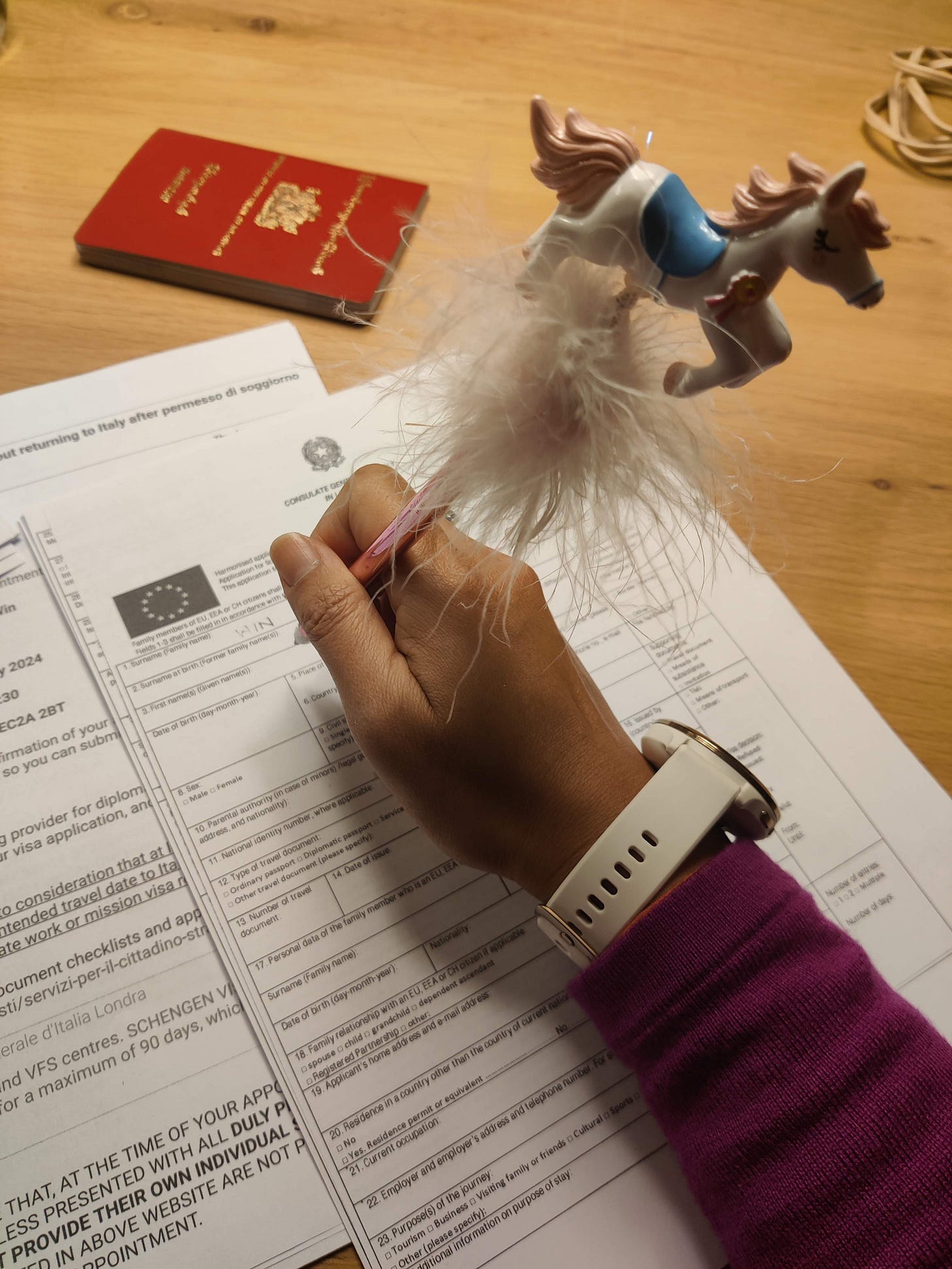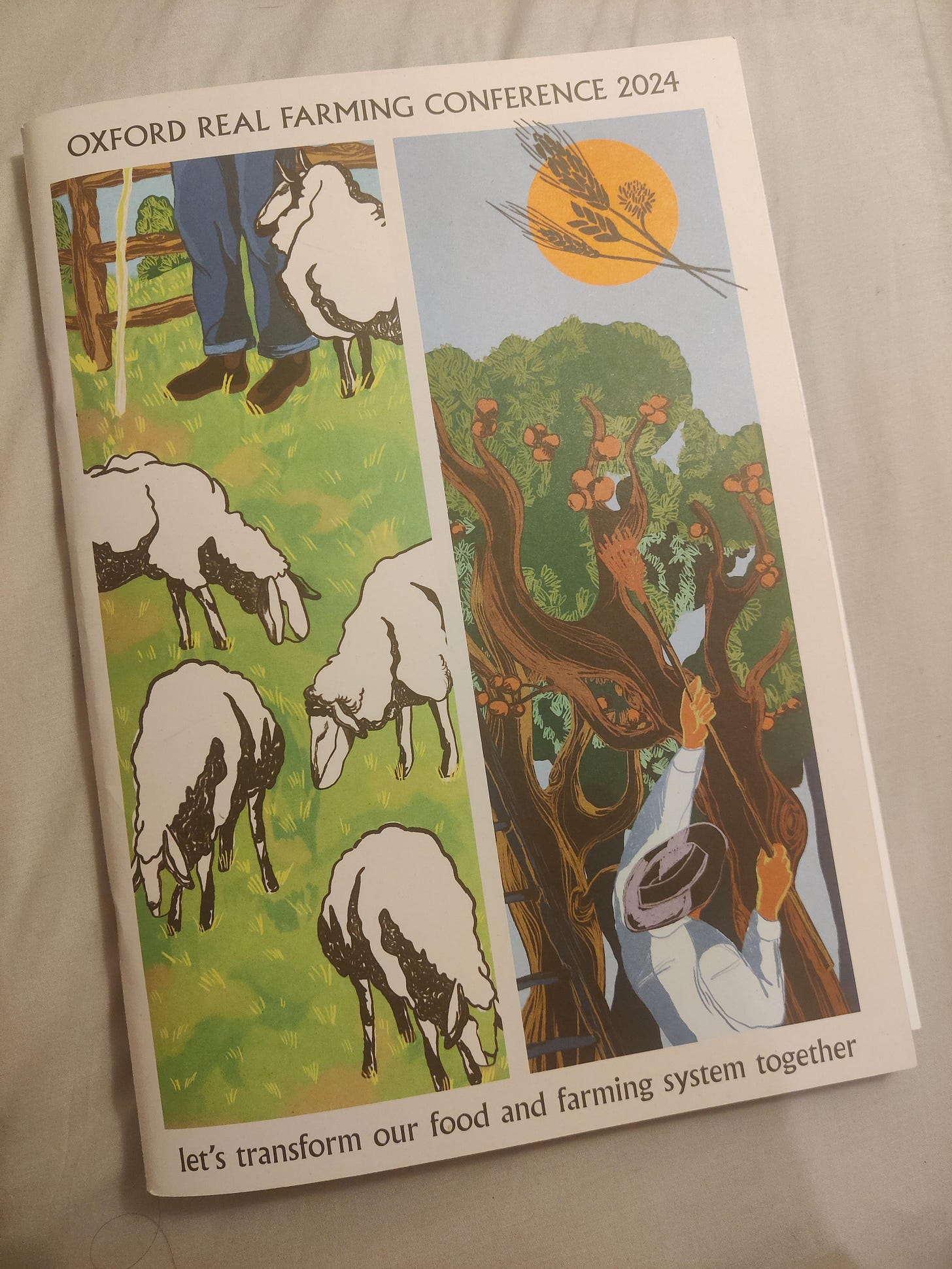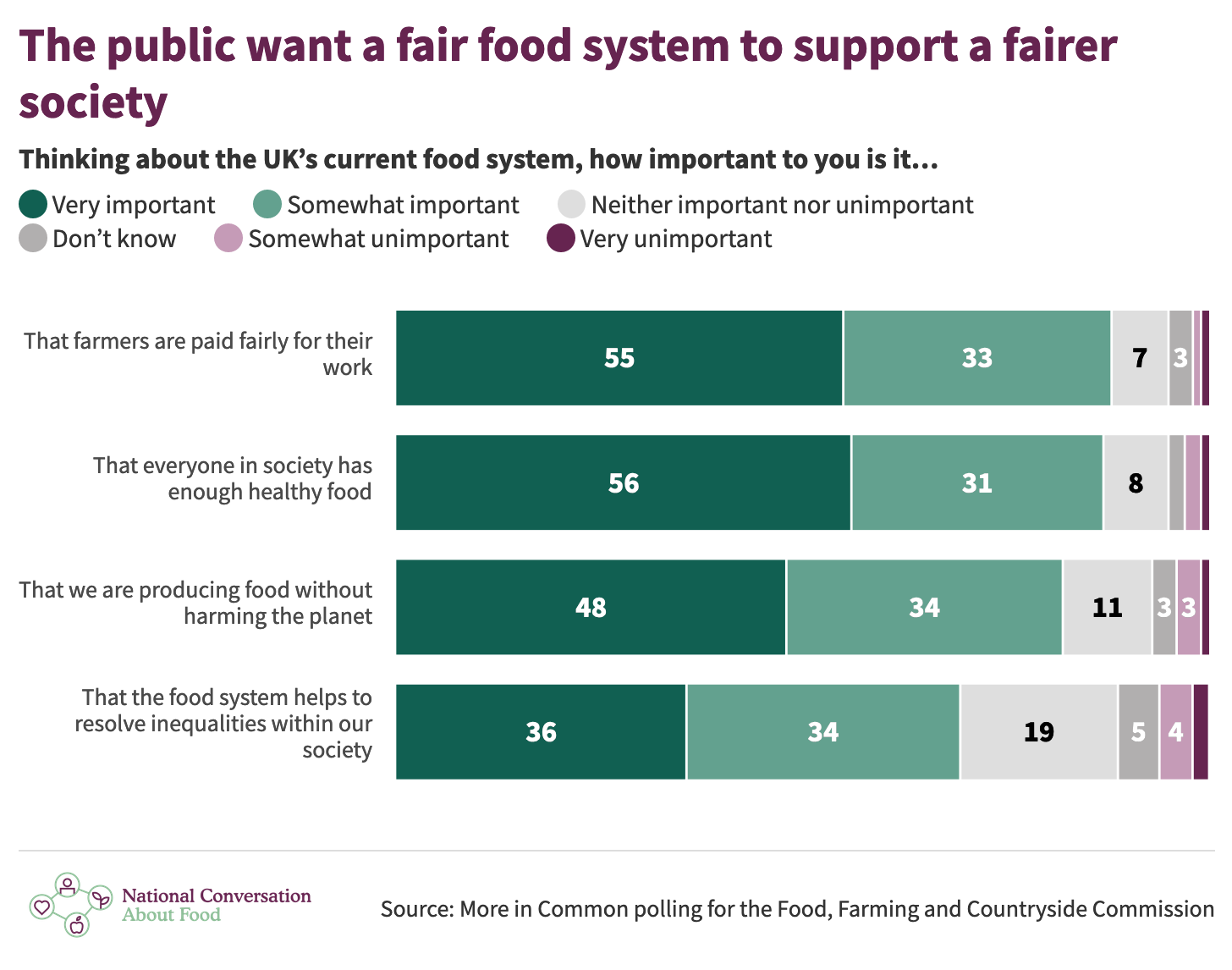You Win Some, You Lose Some
If the first two weeks of 2024 is this much of a roller coaster, what will the rest of the year bring?
So I had originally envisioned a very different newsletter for this week, the first Thin Ink issue of 2024. But it would be remiss of me as a journalist and writer not to reflect and incorporate the high highs and the low lows of the past two weeks.
In other words, you’ll get the full whack of my ramblings throughout the newsletter instead of just in the preamble, and will better understand why this issue is late. Oh, and a pro tip: don’t let your belongings out of your sight.

Losing Some
Last week, I embarked on my first trip of 2024: to attend and speak at the Oxford Real Farming Conference 2024 (ORFC). I wondered initially about the logic of holding a conference in the deepest, darkest winter period but the energy, passion, and inspiration I experienced at the event amid the Hogwarts vibes was pretty special.
So I changed my mind - starting the year on such a high was a pretty smart move. But since this section is about ‘losing’, let’s get on with it.
The first thing I lost was my watch. I don’t know exactly where or when it happened, but it must have been around the time when an usually large crowd of travellers were rushing through airport security and I lost sight of the different trays with my belongings for a few minutes.
A week later, something similar, but bigger, happened. I was in central London catching up with a friend and their colleague in a quiet, almost deserted pub. When I got up to go meet another friend, I suddenly discovered, with a bad feeling in the pit of my stomach, that my backpack, which I’d placed right behind my chair, was nowhere to be found.
My backpack, with a laptop, a digital notebook, and my reading glasses. My backpack, with the chargers, adaptors and house keys. My backpack, with my wallet which has all my bank cards and Italian paperwork (!!!!!).
We were horrified AND stumped. There were at least two of us sitting and chatting at the table at any one time. The bartender told us a suspicious looking guy had come in and left without ordering anything and that such thefts have become a weekly phenomenon.
I’ve had things stolen before but this was my worst (administrative) nightmare coming true. Having had multiple up close and personal experiences of the legendary Italian bureaucracy, I was always terrified of losing my precious and hard-earned Italian documents.
We would probably never know how it happened. It is also highly unlikely I would ever see any of my things again (the police called me the next day to tell me essentially that). I was left to contend with this awful feeling of being violated and a persistent anger at myself for being so careless.
Winning Some
At first, I thought this was a terrible ending to what had up until then been a fantastic trip. But I came to realise there were many things to be thankful for.
First off, I have awesome friends - one immediately called the police to make a report and the other went around to see if my bag and its contents have been dumped somewhere by opportunistic thieves who might just want to grab the laptop (No luck there, I’m afraid.) The second friend turned up to sit with me, bought me drinks, helped me navigate logistics and calmed me down.
When I got back to my friends’ apartment in north London where I’d been staying, they were waiting for me with a deliciously spiced bowl of mushroom curry and a bottle of wine. Half a dozen friends offered their guest rooms and couches. Dear friends lend listening ears and commiserated with me. When I was panicking, they reminded me that this too shall pass. When I was in my Burmese stiff upper lip mode, they told me I’m allowed to be human.
And when I found myself in the midst of a Kafkaesque situation with the paperwork required to go home, they helped me out.
The next morning, after barely sleeping, I walked my friends’ kids to school. The fresh air and their innocent chatter did much to revive me.
I’m also thankful to still have my passport and phone, and pretty much everything I lost is replaceable. It is expensive and painful but I’m in the fortunate position of being able to replace them. In fact, I’m typing this on a laptop that is 24-hours-old.
I still don’t know when I will get home or whether I can stick to my scheduled work travels, but at least I am in a place I have lived before and with friends I can lean on. I was not mugged, my health is intact (as far as I know), and I have a roof over my head and food in my tummy.
I am living through what I thought would be my worst (administrative) nightmare. Although I am pretty shaken, I’m still standing. I’d take that as a win.
Winning Even More…
The bigger wins, though, came from the farming conference, but a bit of a background and context first.
Every year, over the same chilly days in the first week of January, Oxford plays host to two farming events - the Oxford Farming Conference (OFC) and the Oxford Real Farming Conference (ORFC).
The former has a long history dating back nearly nine decades and bills itself as “the leading international conference held in the UK for farming and agribusiness”. The latter was set up 15 years ago as an alternative by those who want to transform our food systems and share progressive ideas.
Both talk about pretty much the same things but there is a definite feeling that the former has the blessing of the powers-that-be and the latter is driven by those who want a bottom-up approach.
The difference can perhaps be gleaned from the programme - a main stage with some side events for the OFC and a dizzying array of sessions held in 17 different rooms simultaneously for the ORFC. Here’s an interesting piece from someone who attended both events last year.
What I found interesting is that in the short span of 15 years, the attendance for ORFC has surpassed that of the OFC. The upstart welcomed 1,800 in-person attendees and hundreds more online this year. These are farmers and students, activists and researchers, lawyers and economists, young and old, all committed to positive action on food, nature, and climate. I’d take that as a win too.
I couldn’t find the exact figures for the OFC, but the information on its website and speaking to those who attended suggest it was half the size or smaller than ORFC, despite speeches by the Environment Secretary, the president of the National Farmers’ Union, and founder of the Netherlands’ Farmer Citizen Movement (BBB, BoerBurgerBeweging), a protest party which won big in the country’s regional elections last March.
To me, this shows that people are deeply interested in change and actions that can bring out such change. It also shows that people care about farmers, farming, and our food systems.
I attended sessions on how to ensure farmers can continue to exchange seeds, how a generation of young people have taken to crofting (an old Scottish system of landholding), how to balance parenthood and regenerative agriculture, and what food sovereignty looks like today.
With so many interesting discussions, I wasn’t sure if there would be many attendees for our panel, which featured me, journalists from DeSmog and an expert from IPES-Food. We were talking about how big industry influences food and farming policy.
To my delight and surprise, it was a full house, with some people standing and others watching from the gallery above. Another 180 people joined the live webcast. The attendees were also very engaged and had loads of questions. It was a very heartening experience. I’d take that as a win too.
But Who Speaks For Us?
One of the sessions I attended was organised by the Food, Farming and Countryside Commission (FFCC), which embarked on an ambitious programme 18 months ago to really dig into a narrative being peddled by the UK government and supporters of the status quo: that all people care about when it comes to food is the price.
Is that really the case? Is also it true people don’t want the government to introduce policies on food and farming because that would be akin to living in a “nanny state”? Or are these just excuses for inaction? The FFCC commissioned a qualitative research process, starting in Birmingham and Cambridgeshire, as well as national polling, to find out.
The results are fascinating.
88% of the public want to see British farmers paid fairly
77% of the public said the gov should aspire to have high standards on health and are unwilling to sacrifice those standards to make food cheaper.
75% of the public think that the government is not doing enough to “ensure that everyone can afford healthy food”.
71% of the public want to see farming that supports nature incentivised through subsidies and investment.
67% of the public think the government is not doing enough to protect children from unhealthy food and drinks.
62% of the public think the government is not doing enough to stop farms from releasing animal manure and harmful chemicals into rivers and the sea.
“People want a fairer, greener, healthier food system and are dismayed that more action isn’t being taken to limit harms to health, environment and nature. They challenge the taken-for-granted tropes – like ‘nanny state’ – that get deployed to stop or delay action,” FFCC said in a report on the polling and research findings.
“They understand that the issues are too big, too complex and too interconnected to be resolved by consumers acting alone, because exercising ‘choice’ in a food system as it is currently configured isn’t really a choice at all. They recognise government’s role to set standards and a level playing field for all businesses to be able to operate profitably by doing the right thing.”
“Most importantly, this is consistent across all demographics and political views and in nationwide polling. Food is a unifying topic.”
More details of the polling data here.
The session is worth watching and it’s only 45 mins. Guy Singh-Watson has found a new fan in me!
Thin’s Pickings
Calling Presenters - (Critical Research on Industrial Livestock Systems (CRILS)) Network
This one isn’t a journalistic output but a new initiative by two cool folks looking to connect researchers and non-academics (civil society, policymakers, industry actors, and lawyers) who are seeking nuanced narratives around livestock production systems and their roles in a sustainable food system.
They are keen to understand the trade-offs of large-scale, industrial livestock systems (especially in Global South) and to use available evidence to advocate for just and sustainable food systems.
They are organising workshops on 16 and 17 April in London this year. Apply here.
Gaza is Starving - The New Yorker
Horrifying but important read from Isaac Chotiner who interviewed Arif Husain, WFP's chief economist. I've interviewed Arif multiple times and he's not the type to exaggerate.
"I’ve been doing this for the past two decades, and I’ve been to all kinds of conflicts and all kinds of crises. And, for me, this is unprecedented because of, one, the magnitude, the scale, the entire population of a particular place; second, the severity; and, third, the speed at which this is happening, at which this has unfolded, is unprecedented. In my life, I’ve never seen anything like this in terms of severity, in terms of scale, and then in terms of speed."
Agri-spin: How Big Industry Influences Food and Farming Policy - Oxford Real Farming Conference
Our 45-min session on how Big Ag’s powerful PR machine spreads influential narratives to maintain the polluting status quo. I spoke about our investigations on Copa-Cogeca and ELV, DeSmog’s Clare shared the findings of their work on pesticide companies, and IPES-Food’s Emile brought his agricultural science and research expertise.
As always, please feel free to share this post and send tips and thoughts on mastodon @ThinInk@journa.host, my LinkedIn page, twitter @thinink, or via e-mail thin@thin-ink.net.








I'm sorry to hear about what happened to you in London! I had a similar experience in Barcelona while freelancing remotely - my bag was stolen and I lost my passport, laptop and ID card. As stressful and complicated as it is in the moment, it's amazing how quickly we bounce back and find a way forward. Thanks for your reporting and I hope things get smoothed out soon!
Thank you for your very interesting reporting of the ORFC, in particular about the polls on food systems in the UK. Price is not all. I believe it would the same story in the EU, maybe with some nuances here and there. A subject to look at with deeper attention…
I send you all my sympathy for the robbery of your rucksack and all your belongings therein. Hope you now got everything back to normal, but I know it is an absolutle nightmare !
Best,
JF